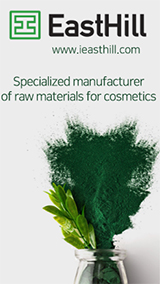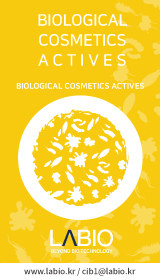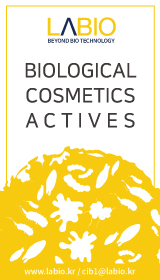
Since June of last year, the Korea Cosmetics Association has formed a public-private consultative body for regulatory innovation with the participation of experts from the Ministry of Food and Drug Safety, related institutions, and academia, and as the first step for a new leap forward for K-beauty, global standardization and currentization of regulations related to the cosmetics industry carried out activities for
Through six months of consultative body activities, the details of the innovation targets were greatly changed under the premise of △ conversion to a global negative system for fostering innovative and creative brands △ introduction of the K-beauty global safety management system △ establishment of a global standard quality management system. derived
The basic requirement and the biggest challenge for such regulatory innovation is that the current cosmetics law must be 'completely revised' to the level of 'newly enacted'. This not only has to go through the process of proposing a revision (proposal) and passing it in the plenary session of the National Assembly, but also needs to leave open the possibility that the initially intended direction and purpose may change in the process.
Regardless of future schedules, Cosmorning reviews the regulatory innovation tasks and directions presented by the Cosmetics Association through discussions with the Ministry of Food and Drug Safety for each issue and publishes detailed plans for them in series. The third subject of discussion is the conversion of the natural and organic cosmetics certification system led by the private sector. <Editor's Note>
The government standard and certification system for natural and organic cosmetics is 'only'
Currently, Korea is the only country in the world where the government regulates standards and operates a certification system for natural or organic cosmetics. △ France (ECOCERT) △ Germany (BDIH) △ England (Soil Association), which have global recognition, all fall under private certification.
The diagnosis of the public-private consultative body supervised by the Ministry of Food and Drug Safety and the Korea Cosmetics Association is as follows: △ Global private certification for natural and organic cosmetics actively reflects market trends and consumer needs, and changes by upgrading the standards △ Conversely, the government standards and Certification is that it is virtually impossible to reflect trends immediately.
Due to such differences in standards in the current cosmetics industry environment in Korea, △ companies must separately obtain certification according to the government certification system for domestic launch of products, and △ global private certification (ECOCERT BDIH) with global recognition for export. Therefore, the difficulty of duplicate certification △ Excessive time and cost is hindering the growth of companies and burdening the industry.
In particular, it is pointed out that the effectiveness of this government certification system is greatly reduced, except for some products targeting only the domestic market.
In addition, in the case of developing new natural and organic cosmetics, there is a situation where it is necessary to research and develop products that meet both global certification standards and domestic standards.
Industry officials say, "In this case, considering the fact that the overseas market is relatively larger than the domestic market, rather than developing a product that meets both standards, people would rather choose to give up advertising for natural and organic cosmetics in Korea." .
Virtually compulsory... Barriers to entry into the natural/organic cosmetics market
The natural/organic cosmetics certification system is not an obligation or regulation in itself.
However, the reality is △ Definition of natural and organic cosmetics △ Ministry of Food and Drug Safety standard regulations (Cosmetics Act Article 2-2-2 and 3) △ Prohibition of display and advertisement (Article 13 Paragraph 1 Sub-paragraph 3) and Expressions related to natural and organic cosmetics are allowed only for products that meet the combination and standards. In the case of products that do not meet the standards, the use of related expressions is prohibited.
In cases where the standards of the Ministry of Food and Drug Safety are met, even if the product is not certified by the Ministry of Food and Drug Safety, it is possible to use expressions related to natural and organic cosmetics in labeling and advertising by preparing empirical data according to Article 14 of the Cosmetics Act. Nevertheless, it is pointed out that it is difficult to secure competitiveness in the domestic market compared to other products that have been certified by the Ministry of Food and Drug Safety and have been marked with that certification.
In the end, it is persuasive to argue that coercion is latent by making it very difficult for companies to enter the domestic natural and organic cosmetics market if they do not go through the process of 'meeting the standards of the Ministry of Food and Drug Safety → certification by the Ministry of Food and Drug Safety'.
In the case of products that do not meet the standards of the Ministry of Food and Drug Safety, related expressions cannot be used even if they are certified by a globally recognized overseas certification body.
Moreover, if expressions related to natural/organic cosmetics are used in labeling/advertising without meeting the standards of the Ministry of Food and Drug Safety, they will be subject to sanctions such as suspension of sales of the relevant product or suspension of advertising of the relevant product.
Even if a company displays, advertises, and sells natural and organic cosmetics through global certification in overseas markets, domestically, it faces an unreasonable situation in which it displays, advertises, and sells natural and organic cosmetics as general cosmetics without informing consumers of the differentiated characteristics of natural and organic cosmetics. do.
Why government standards and certifications are needed for trends that are not related to safety
Interest in natural and organic cosmetics is a trend. When consumers are highly aware of chemicals, the demand for the product rises, and when the opposite is the case, it will naturally have liquidity according to the market environment.
Although the current government certification has nothing to do with product safety, the government presents standards according to the trend of natural and organic cosmetics, and if the standards are met, it is certified as 'high-quality cosmetics'. It is enough to give an optical illusion that 'natural and organic cosmetics = high-quality cosmetics'.
In fact, it is a form of recommending to consumers only certain products that have been certified as meeting the standards arbitrarily set by the government, and forcing companies to manufacture products in accordance with government standards. There is room for complaints that the government is excessively intervening in the market.
Conflict with the display/advertisement verification system under the negative regulatory system
It is also pointed out that the natural and organic cosmetics certification system does not harmonize with the negative regulatory system by making the labeling and advertising verification system in Article 14 of the Cosmetics Act useless for natural and organic cosmetics.
In 2012, at the time of the full revision of the Cosmetics Act, it was converted to a 'negative regulation system' by introducing a display and advertisement verification system. In case of a dispute, the company promptly proves that there is no problem based on empirical data, and if it fails to prove it, it takes legal responsibility (stop advertising activity, liability for damages). etc.)
Article 14, Paragraph 1 of the Cosmetics Act stipulates that 'business operators and sellers must be able to prove facts related to their labeling and advertising.'
Interpreted as it is, it means that 'business operators and sellers can display and advertise to consumers that they are natural and organic cosmetics if they have empirical data that can prove that they have manufactured and sold cosmetics with natural and organic ingredients.'
However, in Article 13, Paragraph 1, Item 3 of the Cosmetics Act, expressions related to 'natural cosmetics' or 'organic cosmetics' can be used only for labeling and advertising of products that meet the standards of the Ministry of Food and Drug Safety, and those that do not meet these standards In case of unsuitable products, use is prohibited.
Therefore, if operators and sellers intend to use expressions related to natural and organic cosmetics in the domestic market for labeling and advertising, it is not enough to obtain data prepared for global certification or proof of natural and organic ingredients, and separately confirm that they have met the standards of the Ministry of Food and Drug Safety. materials must be provided.
In summary, an advertising activity that effectively communicates the characteristics of a product by making companies who regard rapid response to trend changes and rapid product launch as their lifeblood worry about the time and cost required for preparing separate empirical data and the certification process of the Ministry of Food and Drug Safety (FDA). It leads to the conclusion that it makes them give up advertisements that differentiate themselves by emphasizing that they contain natural and organic ingredients or give up sales in the domestic market.
At this point, consumers cannot properly know the characteristics of the product (the fact that it contains natural and organic ingredients), and eventually domestic consumers reduce product selection and limit their right to know due to a lack of information on various global certifications used by consumers around the world. that it is receiving
As long as the labeling and advertising verification system was introduced into the Cosmetics Act along with the negative regulatory system, the current government certification system is unnecessary regulation.
In the case of food under the jurisdiction of the Ministry of Food and Drug Safety, those who label food, etc. or advertise food, etc. have to verify their labeling or advertisement. The 'Regulations on Recognition of Reliability of Livestock Labeling, Advertisement Certification, and Guarantee Agency' was already abolished in 2019, and even in the case of vegan certification, there is a case in which regulations have been relaxed so that companies can self-label and advertise on the premise of demonstration.
Feasibility of conversion to private certification system
High-quality recommendation certification led by the government is less efficient than certification by private companies. On the other hand, for low-quality prevention certification (safety certification), a government-led model can be effective.
The natural/organic cosmetics certification system is not a safety system, but a high-quality recommendation certification. If the government is in charge of this, it is highly likely that the certification system will work as a regulation. Therefore, it is the result of the public-private consultative body's review that it is more effective to take charge of this certification system in the private sector.
However, there are some aspects that should not be overlooked in the process of introducing such a privately led certification model. In other words, since about 90% of private certified companies in Korea are small businesses, it remains a task to consider how to nurture the private certification industry for cosmetics along with the conversion of this certification system to private certification.







